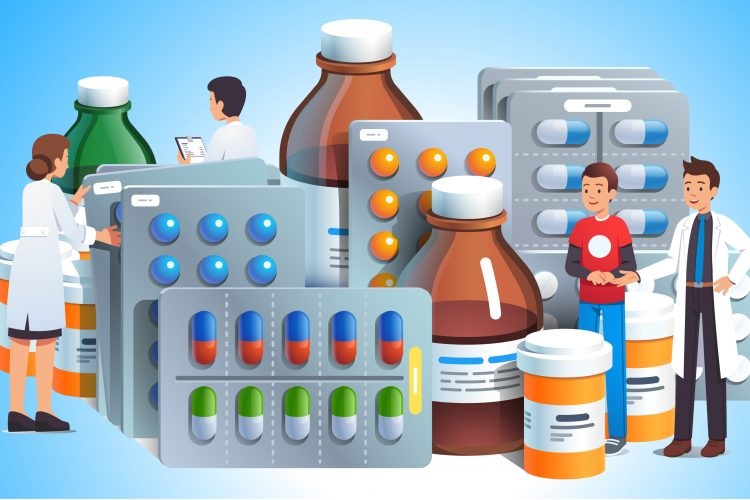
OpenAI has held a series of discussions with officials at the U.S. Food and Drug Administration (FDA) over the potential use of artificial intelligence to streamline parts of the drug evaluation process, according to a report by Wired published Wednesday.
The talks mark a significant step toward integrating generative AI tools into one of the most tightly regulated and scientifically rigorous areas of the U.S. federal government.
At the center of the conversation is a project called cderGPT, which appears to be an experimental AI system aimed at assisting the FDA’s Center for Drug Evaluation and Research (CDER). The CDER is the agency’s primary division for overseeing the safety and effectiveness of prescription and over-the-counter medications in the United States.
Register for Tekedia Mini-MBA edition 19 (Feb 9 – May 2, 2026).
Register for Tekedia AI in Business Masterclass.
Join Tekedia Capital Syndicate and co-invest in great global startups.
Register for Tekedia AI Lab.
According to Wired, the meetings have involved not only OpenAI staff but also participants from a newly formed federal agency called the Department of Government Efficiency, or DOGE, an initiative linked to Elon Musk’s broader push to reform how government systems operate through tech innovation. The exact role of DOGE in these conversations remains unclear, but sources familiar with the talks confirmed its presence during several meetings with the FDA.
AI’s Role in Accelerating Regulatory Science
The FDA is reportedly investigating how artificial intelligence could accelerate parts of the drug development timeline, especially during the later stages of review, where volumes of clinical data and scientific documentation must be processed. Drug development in the United States can span more than a decade from pre-clinical stages to FDA approval, with regulatory review often representing one of the more time-intensive phases.
AI could help shrink that window. The FDA has completed its first AI-aided review of a scientific submission for a product. The review was characterized as a milestone in the agency’s modernization efforts.
“The FDA is committed to supporting innovative approaches for the development of medical products by providing an agile, risk-based framework that promotes innovation and ensures the agency’s robust scientific and regulatory standards are met,” said FDA Commissioner Robert Califf. “With the appropriate safeguards in place, artificial intelligence has transformative potential to advance clinical research and accelerate medical product development to improve patient care.”
Jeremy Walsh, a former Department of Defense AI specialist who was recently appointed as the FDA’s AI officer, has been leading the agency’s dialogue with OpenAI. Walsh is also reportedly developing internal guidance on how the FDA could adopt large language models (LLMs) like GPT-4 for regulatory science.
Although the cderGPT project remains largely experimental, people close to the talks told Wired that the conversations have focused on how such a system could assist in data analysis, literature review, and perhaps even drafting parts of regulatory documents—tasks that are often repetitive and time-consuming.
The Promise and Pitfalls of Generative AI in Drug Review
Despite the enthusiasm around AI, many experts warn of the risks. The reliability of large language models, especially in high-stakes fields like medicine, is still under scrutiny. Generative AI models like those from OpenAI have demonstrated incredible capabilities, but they also have real limitations when it comes to hallucinations, transparency, and reproducibility.
This backdrop has created a real need for policy guidance about what datasets are appropriate for training models used in this kind of work, how performance should be measured, and whether the outcomes are interpretable by human reviewers.
According to the Wired report, the FDA is actively investing in understanding these challenges. The agency has launched a fellowship program to train experts on the use of AI in regulatory science and is reportedly experimenting with its own in-house large language models to explore specific applications in areas like precision medicine and post-market surveillance.
A Government-Wide Shift Toward AI?
The involvement of DOGE, a government body reportedly initiated under Elon Musk’s influence, adds another dimension to the story. While DOGE’s official mandate is still largely undefined, it has been described by internal sources as a cross-agency task force aimed at making government more efficient through emerging technologies.
DOGE’s participation in FDA talks with OpenAI suggests a growing federal appetite for AI-led transformation, not just in public services but within scientific agencies that have traditionally operated with high levels of caution and bureaucratic inertia.
Time will tell whether OpenAI’s cderGPT or similar projects become central fixtures of the FDA’s regulatory toolkit. But the willingness of both parties to even explore such a future underlines a meaningful shift in how the U.S. government thinks about innovation, automation, and public health.



